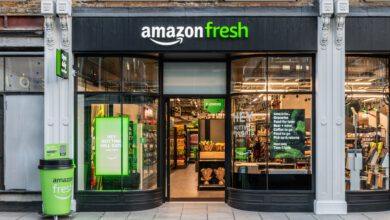Why retail rewards schemes do not necessarily create loyalty

Register to get 1 free article
Reveal the article below by registering for our email newsletter.
Want unlimited access? View Plans
Already have an account? Sign in
Customer loyalty is not something retailers can afford to take for granted. With only 3% of people saying they feel devoted to their favourite stores, it’s the norm to shop around for the best deals and ‘cheat’ on one’s usual shop of choice.
Although consumers still see some of the benefits of loyalty schemes – approximately eight in 10 say they make them more likely to build a relationship with a retailer – they are easily swayed to other schemes that offer improved perks. So the question has to be asked; do loyalty schemes actually encourage loyalty?
The main reason people join loyalty schemes is to save money, most of the time they don’t see any intrinsic or symbolic value in being loyal. However, convenience and simplicity are vitally important factors.
Paradoxically, for all the advancements in modern retail, the retail journey that consumers go on today is more complex than ever before. Consider how far things have come from a physical shop competing on the high-street. Retailers are now often competing on a worldwide stage. There is an incredible amount of choice, which can add complexity for consumers. Making things convenient can be game-changing, but convenience itself is subjective.
Retailers are looking to address individual needs of customers and this requires a deep understanding of their expectations. As such there are moves towards long term engagement rather than shorter-term financial incentives. Today, customers expect personalisation, or at least perceived personalisation.
This is one of the main things that really prevents people from switching to more convenient offerings. If consumers perceive that a service is tailored to their needs and that a retailer ‘knows’ them, they’re going to be more likely to be ‘loyal’ as they have invested in that relationship, even if it’s just the time it took to build.
Some retailers are responding by turning loyalty schemes into ‘clubs’, memberships of which are intended to provide more than simple, transactional incentives. The intent is to create communities far beyond a retailer’s core offering and which resonate with many facets of peoples’ lives.
LOT 2046 is a very interesting example. It’s a subscription-based lifestyle outlet that regularly delivers a mix of clothes, accessories, tools and self-care items, gradually adapting to users’ tastes over time by analysing their feedback. Here, the functional benefit of simplifying lives and reducing choice anxiety is intertwined with the symbolic, aspirational value of almost ‘giving up’ on stressing about your external appearance, and of course the sense of belonging that comes with being part of a community with a very distinctive aesthetic and very clear values.
Of course retailers are not always asking consumers to spend to earn loyalty rewards. Women’s fashion retailer Simply Be gives customers rewards for ‘engagement’ after research showed consumers thought they had to work too hard on point-collecting schemes. Likewise, although financial savings remain the key motivator in many schemes, there is room for innovation in value perception.
A 2014 behavioural study found that in some cases a reward of uncertain value can motivate people to invest more effort and time to qualify for it than a certain reward of a higher expected value. Offering the biggest financial incentives is not the only way.
Even if consumers usually prefer a certain store, it doesn’t necessarily mean that they feel invested or see intrinsic, emotional value in the relationship. It doesn’t mean that they won’t instantly abandon it for a better offering. If all customers get is discounts or coupons, the next company that offers improved discounts and coupons is going to take them away. That’s not loyalty.
If a retailer wants to prevent their customers from switching as soon as a better deal comes along, relationships have to be based on something more than mere transactional value and short term incentives. If people feel that the time they spent with a service, the longevity of that relationship translates to actual value – it could be a tailored service, a sense of belonging to a community – the value of that long-term investment is going to outweigh the short-term convenience of other options, and they are at least going to think twice before abandoning it.
Edoardo Biscossi is an analyst at leading behavioural insight practice Canvas8. He has a degree in Political Sciences and an MSc in Consumer Behaviour. He’s interested in culture, people, art, the future, the niche, and the mass.







